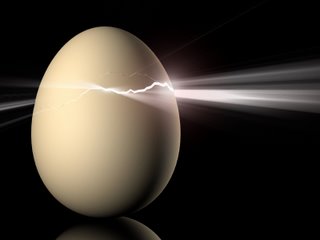Avoid These Foods if You Are Trying to Conceive
 The top three foods for couples to avoid if they are trying to conceive.
The top three foods for couples to avoid if they are trying to conceive.By: Sheryl Lyon
The path to conception should be a great deal of fun but that is often not the case for many couples who have failed to conceive and are not sure why.
Whether you are just starting your journey to conception or have received the incredibly frustrating diagnosis of unexplained infertility, it is a wise step to evaluate your diet for the impact it can have on your fertility.
Generally speaking, eating for nutrition is a much smarter way to eat than following the latest fad diet. When you are trying to conceive however, you need to examine another piece of the puzzle.
Certain foods, even nutritious ones, can have such a negative impact on your delicate reproductive system that if you are serious about conceiving, you might consider leaving them off your plate for the time being, if not for good.
MEAT, DAIRY, & EGGS
Modern commercial meat and dairy farmers give their animals a phenomenal amount of hormones in order to produce more milk, eggs, or simply to grow faster and larger. These hormones and chemicals remain in the flesh and products of the animals that you consume.
Virtually any animal product that you buy in a grocery store today is loaded with hormones. Some of these hormones are estrogen mimics and wreak havoc on both men's and women's reproductive systems by posing as estrogen so your own estrogen is not used properly.
In addition to infertilty causing hormones, most commercial animal products contain damaging pesticides that were used in making their feed.
Avoiding unnatural hormones and chemicals is vital if you want to conceive so you have a couple of solutions if you eat animal products.
First, you can give up animal products entirely if you want to begin to eat hormone and pesticide free. It is a logical and perfectly healthy step if you do not have much time to waste in your path to conception.
The second, and probably easier alternative, is to go organic. Buy organic grass fed beef, free range organic chicken and eggs, and organic milk and cheese. These products are all available online if you have trouble finding them in your local grocery store. You will be eating the food you are used to while giving up the dangerous, fertility robbing extras.
SOY
In the great media campaign over the last few years, we have all been led to believe that soy is a miracle health food. Unfortunately while soy does have some nutritional benefits when eaten in its natural state or as a small amount of tofu, most processed soy products sold today are very dangerous on many levels, including extensive damage to your reproductive system.
Thousands of studies have linked soy to infertility, decreased sex drive, and extensive damage to both male and female reproductive systems. Like the estrogen mimics in meat, the phytoestrogens in soy are to blame for this damage.
In addition to disrupting both the male and female reproductive system, soy has been implicated in a great deal of endocrine related problems for young boys and girls exposed to soy while in utero or as infants.
Due to the dangers to your child, you should never eat soy while pregnant or breastfeeding anyway so unless you munch a few edamame occasionally, soy should be the first food item to go for a couple trying to conceive.
PRODUCE
Fresh produce is one of the best things that anyone, of any age, or any lifestyle can eat. Unfortunately, commercial farms have doused our produce in chemicals and pesticides that while dangerous for anyone, are particularly dangerous to a delicate sperm and egg or a developing fetus.
Certain pesticides and herbicides can impair reproductive organ function, reduce implantation in the uterus, contribute to or cause endometriosis, or cause poor semen quality.
If you are trying to conceive and wish to avoiding these chemicals you should only buy organic produce, both so you are able to conceive in the first place and for the health of your unborn child.
If you do not have access to organic produce then at the very least scrub all your produce before eating. If you want to play it extra safe then you should thoroughly peel all produce prior to eating.
Make a special point to choose organic or avoid items from the following list created by the Environmental Working Group which lists the twelve most contaminated fruits and vegetables in order of toxicity.
Strawberries
Bell peppers
Spinach
Cherries
Peaches
Cantaloupe(Mexican)
Celery
Apples
Apricots
Green beans
Grapes(Chile)
Cucumbers.
It is not difficult to eliminate some detrimental items in your diet to increase your odds of conception. Simply go organic, skip the soy, and then focus on bringing the fun back to conception.
posted by Fertility Goddess at 12:47 AM 0 comments




